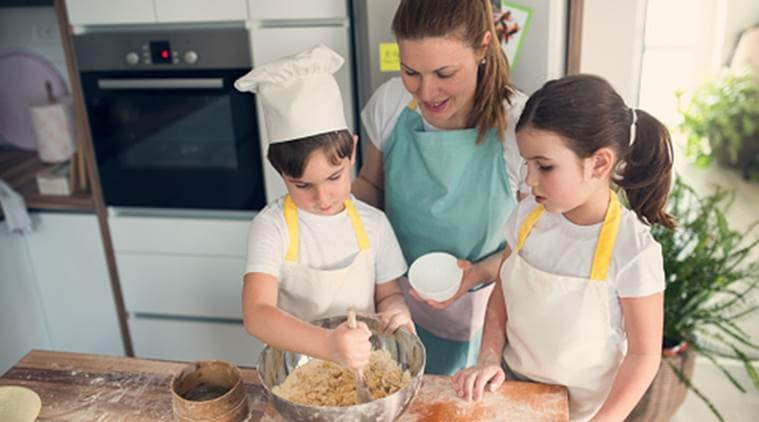 Start young. Even children as young as preschoolers can be given chores. (Source: Getty Image)
Start young. Even children as young as preschoolers can be given chores. (Source: Getty Image)
As a child, one of my chores was taking the dry clothes off the clothesline and bringing them into the house to be folded and sent for ironing. I also remember ironing my school uniform, polishing my school shoes, making the bed and laying the table as part of my daily routine. It wasn’t something that I was necessarily fond of doing, but I did it anyway. As my affectionate but firm mother pointed out, I didn’t have a choice. She insisted it was part of her strategy towards “building my character”. Turns out she was right.
Research has shown us that adults who have done chores as children are more likely to be well adjusted, have better relationships with their friends and family and be more successful in their careers. Chores teach young children to be respectful and responsible. It instills maturity and develops their self esteem and confidence. They learn to work as part of a family unit. Chores provide children with essential life skills that will be applied throughout their lives.
Unfortunately, our children today do not have the same ‘character building’ opportunities. With the rise of domestic help in households and children being occupied with extra curricular activities or a screen, parents no longer assign chores to their kids. Children rarely pick up after themselves, leaving the mess to be cleaned up by their house help or parent. We also underestimate a child’s ability to take on such tasks. By denying them the opportunity to contribute at home, we run the risk of fostering self indulgence.
So, how can we work towards raising responsible, independent adults?
* Start young. Even children as young as preschoolers can be given chores. Make it their responsibility to put away their toys after they have finished playing with them. Schedule a tidy up time during the course of the day. Make a game out of it or sing a song to make it fun for them. They can also put their dishes back in the kitchen after a meal. Or wipe the table with a cloth in case of spills. They can put their shoes in the right place when they take them off. Teaching them to pick up after themselves demonstrates accountability for their actions.
* As they get older, they continue to pick up after themselves. Chores can now include laying out their school uniform for the next day, putting away books and school bags when they come home from school. But, they also need to learn to chip in towards the larger family unit. Laying the table for dinner time or clearing the dishes at the end of the meal are some examples. Siblings can take turns to do the chores.
* A ‘sticker reward chart’ can be used to incentivise them and remind them of their responsibilities. Make sure that they know exactly how you want it done. Give detailed step by step demonstration for whichever chore you would like performed. Show them how to put away their clothes in the cupboard without making a mess. A little extra time taken to show them the right way at this stage is important. Be patient. Praise their efforts and don’t expect perfection. Encourage them to practice getting it right.
* Expect a little resistance especially when it comes to cleaning up after somebody else. “But, I didn’t do it. He made the mess. Why do I have to clean it up?” Because everybody in the family will sometimes make a mess and being part of a family means you pitch in and help out whenever necessary. It’s an essential learning about how to be part of a team. Sharing responsibility in a team is a life skill that can be learnt at a young age. Appreciate their efforts when they help out.
* Teenagers need chores that will equip them with life skills that they will need as a young adult. Making a meal, doing the laundry, ironing clothes, washing dishes, making beds, running errands are all chores that a teenager can easily do. Some parents choose to pay an allowance as a reward for the chores done. Others choose to keep the allowance separate from the basic chores and only pay for any special chores conducted.
*Whatever the age of your child, the key is to be consistent. Decide on the chores that you would like your child to do, demonstrate how you would like it done and ensure that you follow through. If you remind him one week and forget the next or accept his excuses for not doing the chores, he will realise that you don’t really care about the chores and will not put in any effort towards the same. If one sibling is naturally conscientious and does his work, while the other gets away with excuses, eventually both will stop pitching in.
* While the process of getting your child to do their chores is long and tiresome, keep an eye on the big picture. Once your child realises that there is no getting out of it, he will accept the responsibility and albeit reluctantly, will do the chores. And you will be one step further in your objective of raising an independent, responsible adult.